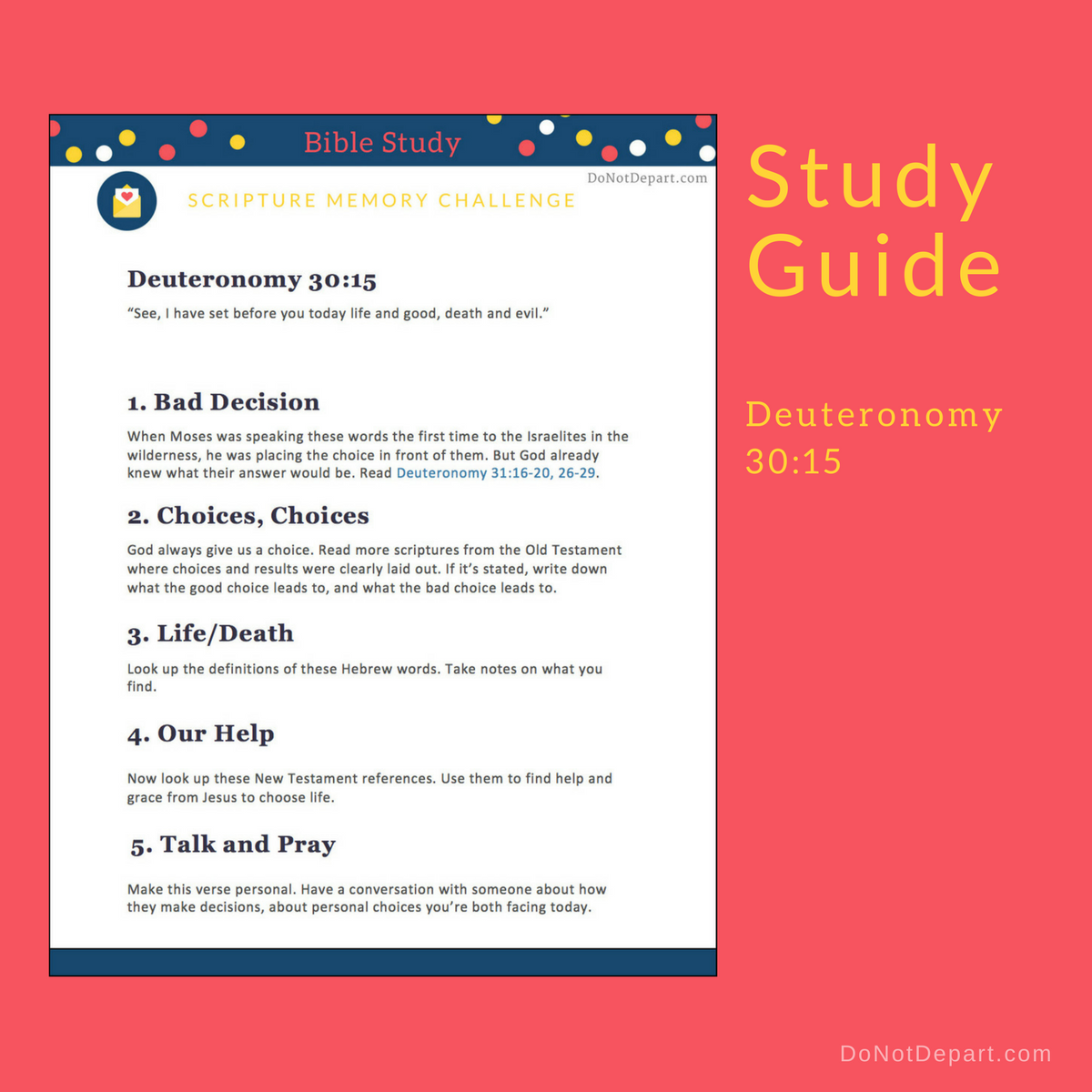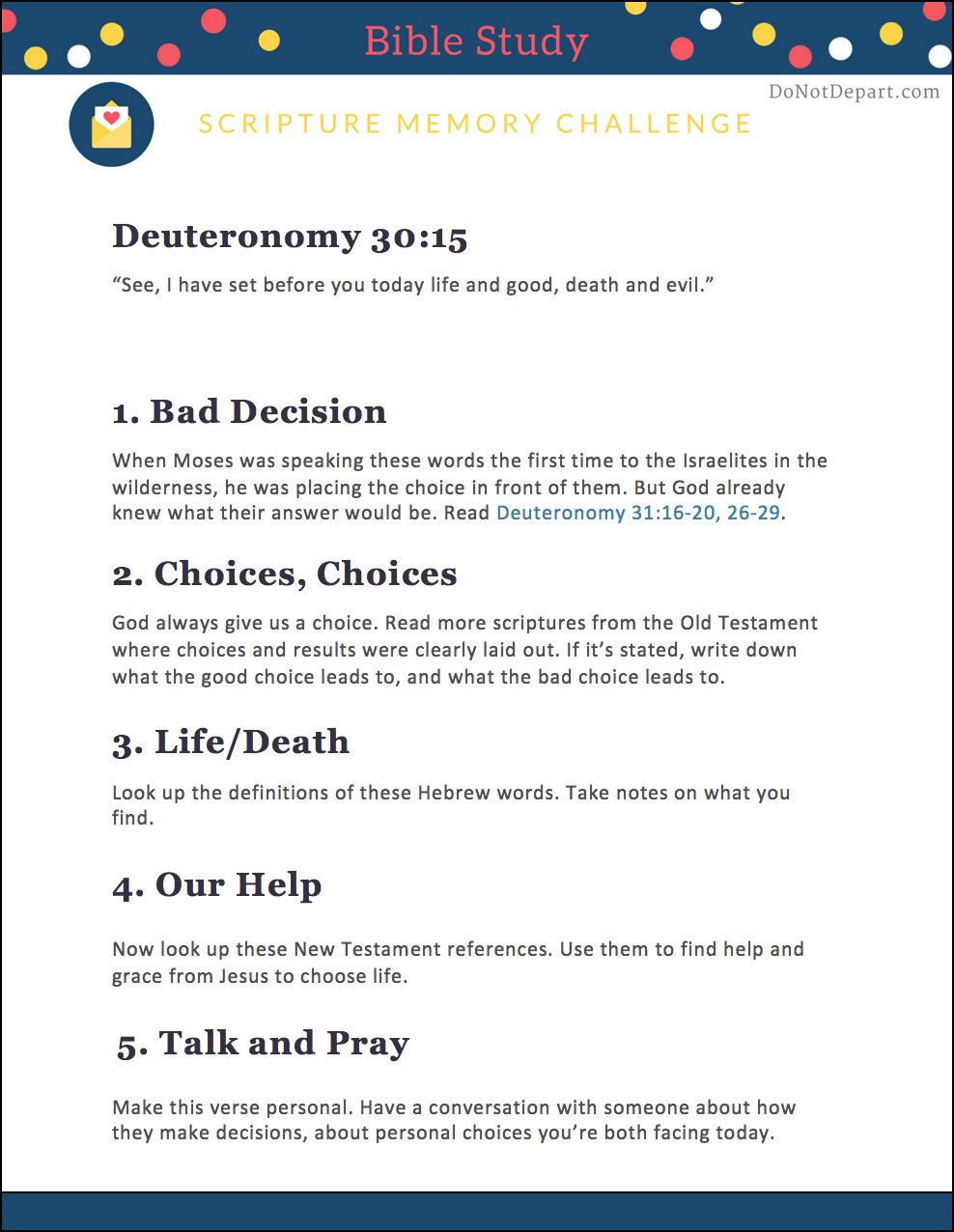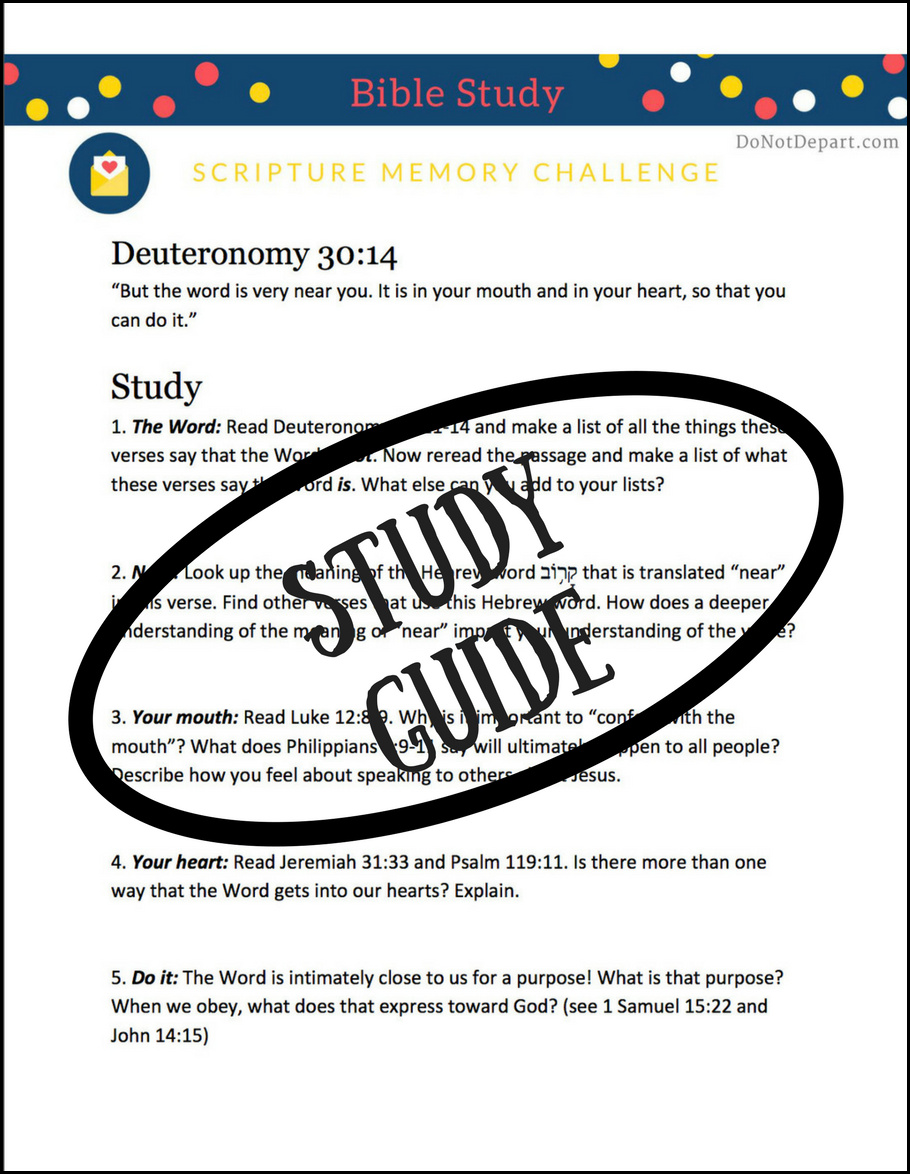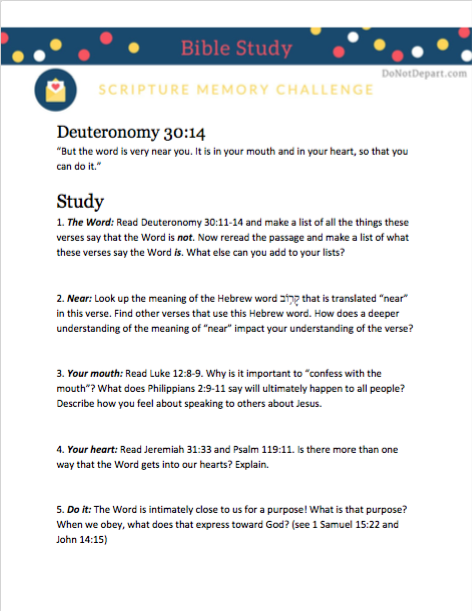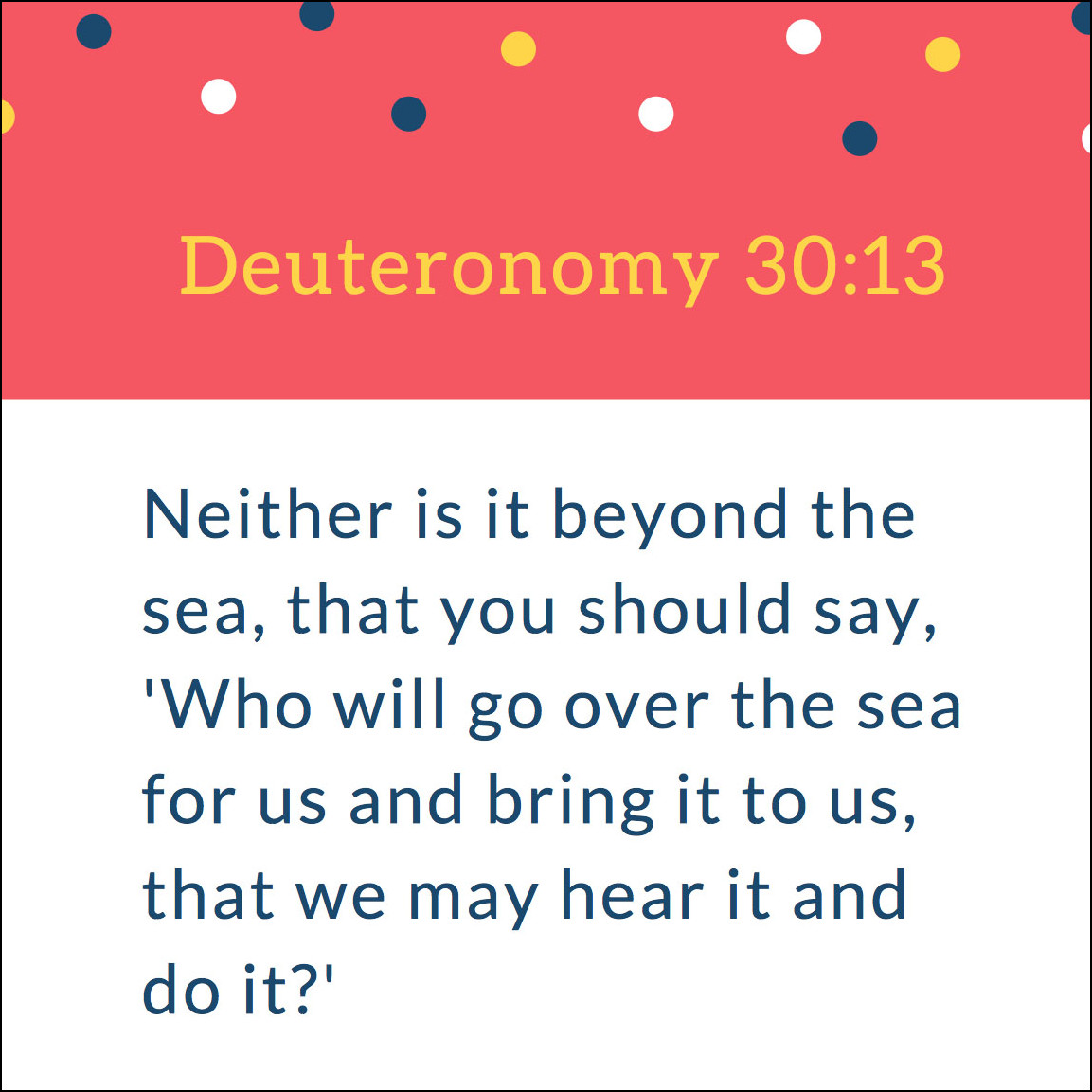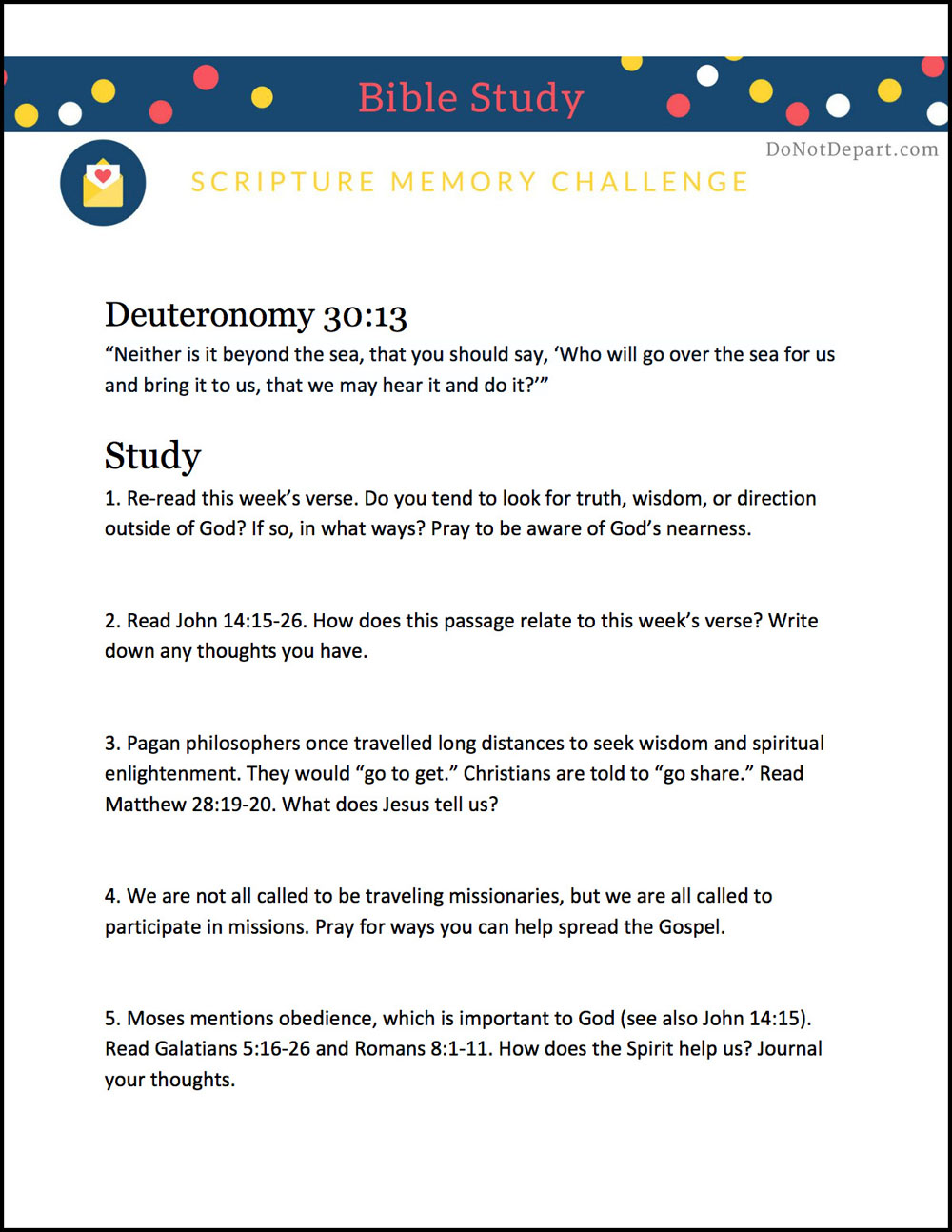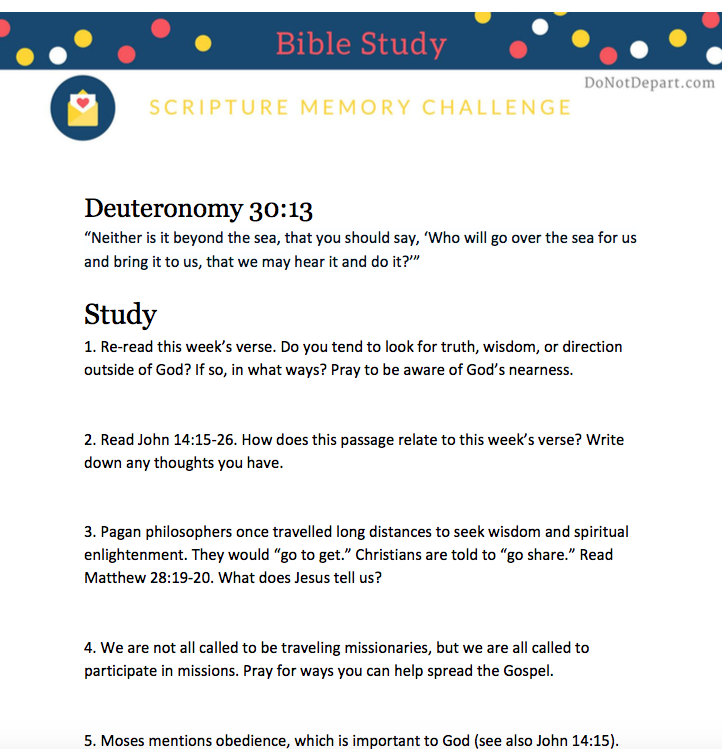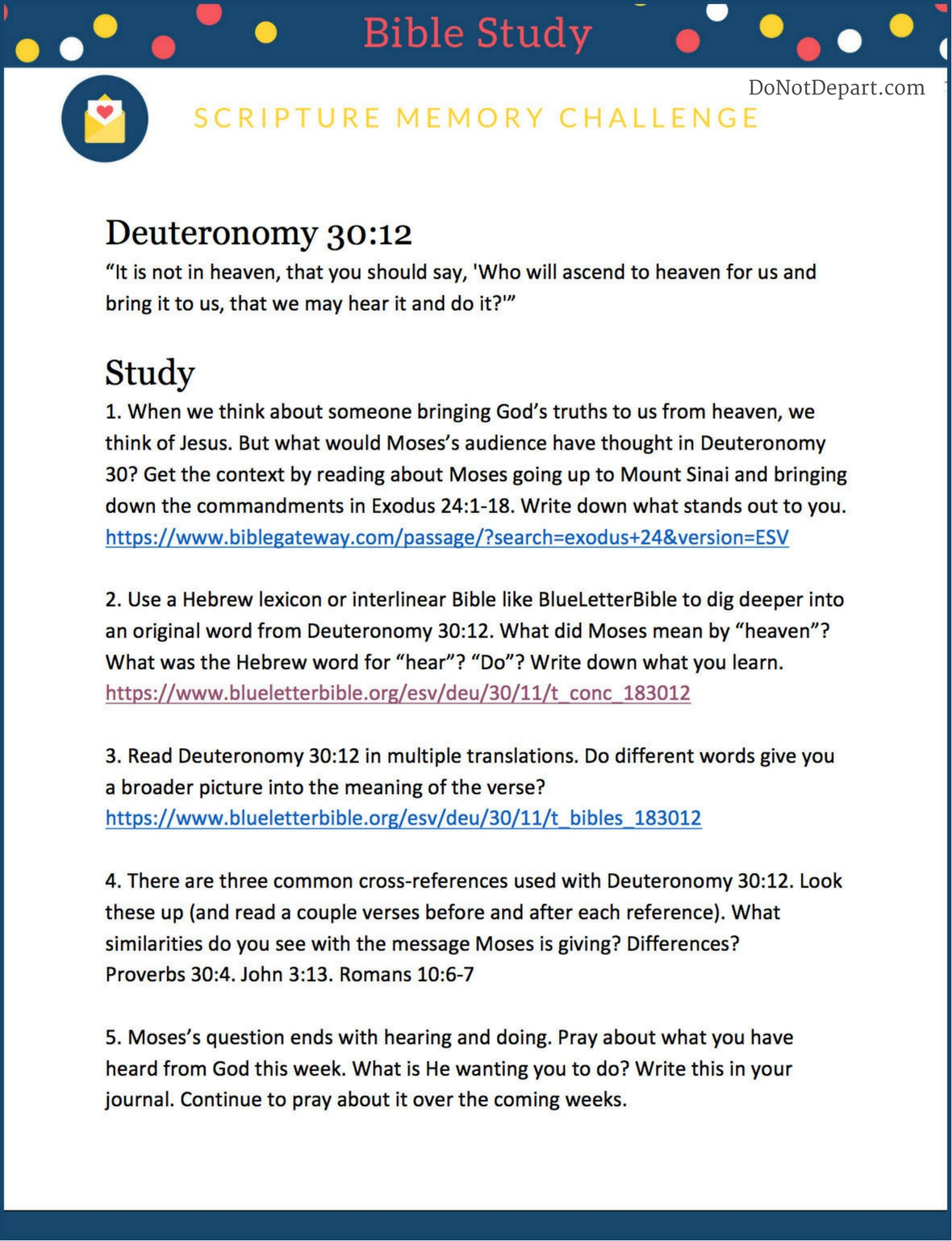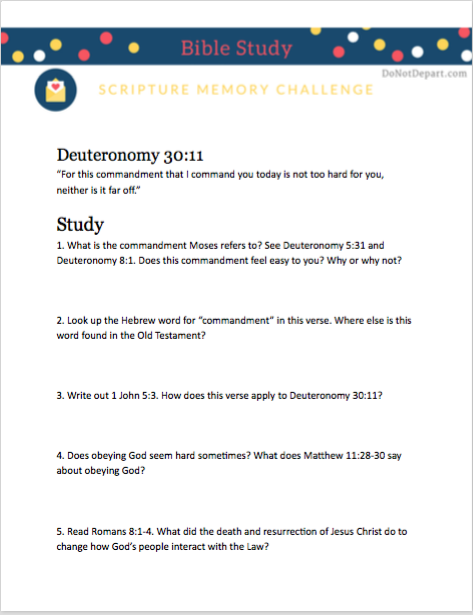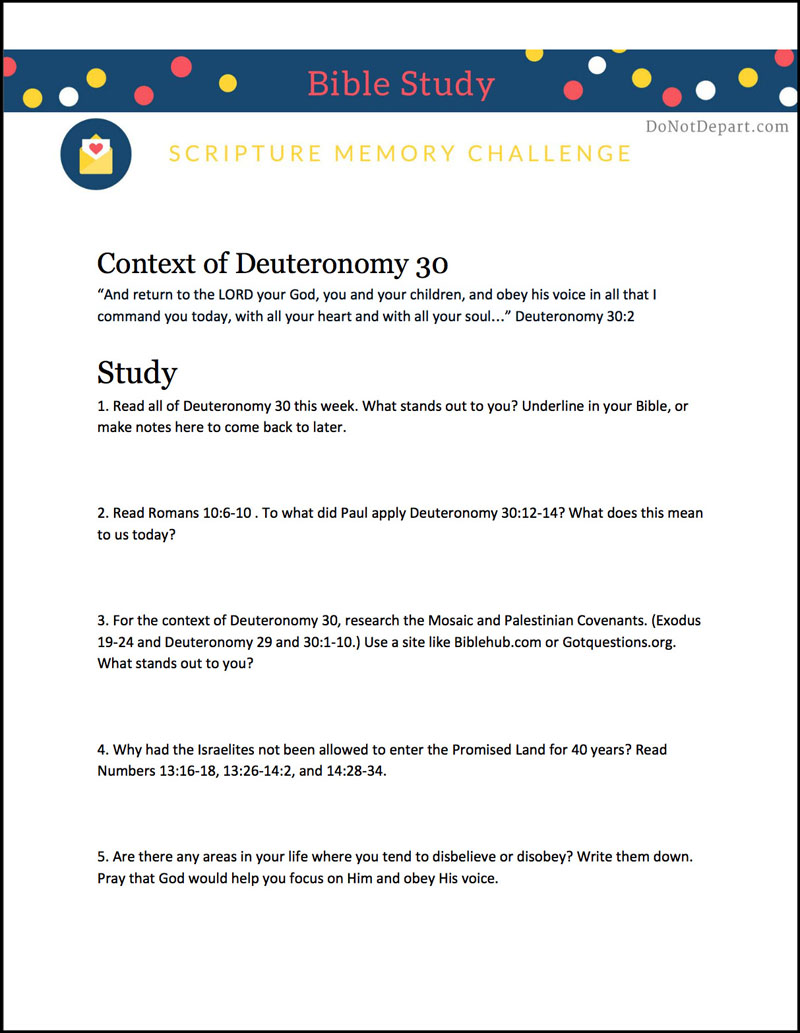Use this study guide to make better choices in the coming week. Choose life over death. Good over evil.
“See, I have set before you today life and good, death and evil.”
Deuteronomy 30:15
This verse is short, but it’s deep. As you memorize and study, consider the importance of not only your “big” choices, but also the “small” ones. They each matter.
God is ready and able to give us grace for each one.
Download the study guide as a PDF here: Study Guide Deuteronomy 30:15

Deuteronomy 30:15
“See, I have set before you today life and good, death and evil.”
1. BAD DECISION
When Moses was speaking these words the first time to the Israelites in the wilderness, he was placing the choice in front of them. But God already knew what their answer would be. Read Deuteronomy 31:16-20, 26-29.
Now read Hebrews 3:7-19. What one word would you use to sum up why they made the wrong choice? How can you avoid making the same wrong choices this week?
2. CHOICES, CHOICES
God always give us a choice. Read more scriptures from the Old Testament where choices and results were clearly laid out. If it’s stated, write down what the good choice leads to, and what the bad choice leads to.
Genesis 2:16-17
Proverbs 10:16
Proverbs 11:19
Isaiah 55:6-7
Jeremiah 21:8-10
3. LIFE/DEATH
Look up the definitions of these Hebrew words. Take notes on what you find.
Life, H2416, chay –
Good, H2896, towb –
Death, H4194, maveth –
Evil, H7451, ra –
4. OUR HELP
Now look up these New Testament references. Use them to find help and grace from Jesus to choose life. Jot down specific words that are special to you.
John 1:12-13
Romans 6:23
1 Corinthians 10:13
Galatians 5:13, 16-18
Revelation 3:20
5. TALK AND PRAY
Make this verse personal. Have a conversation with someone about how they make decisions, about personal choices you’re both facing today, about struggles you have with death and evil, about how you’ve seen good or bad consequences from previous decisions.
Then take it all to God throughout your week.
- Share your intent to choose the way of faithfulness (Psalm 119:30)
- Ask for his readiness to help you (Psalm 119:173)
- Praise him for your soul’s life and for his help (Psalm 119:175)
![]()
Click on the image for a downloadable PDF.
Study Guide Deuteronomy 30:15
For memorization help, we gather at the Hide His Word Facebook group.
For more in-depth discussion on the study, share at the Do Not Depart Community Facebook group.
